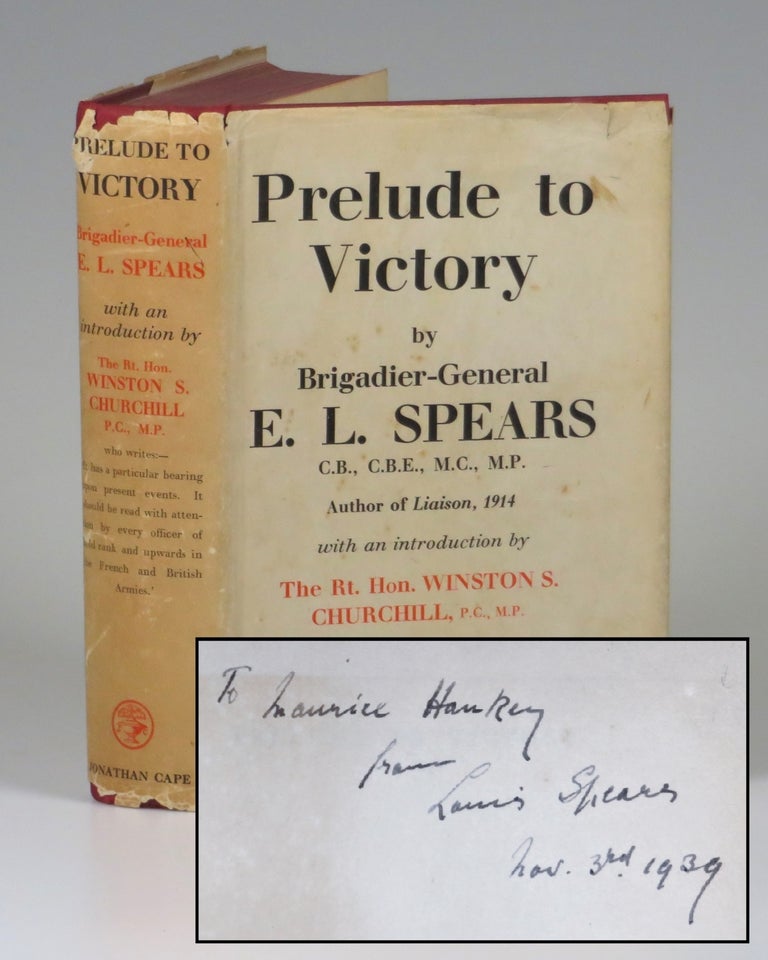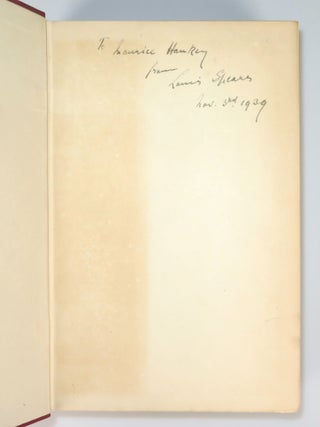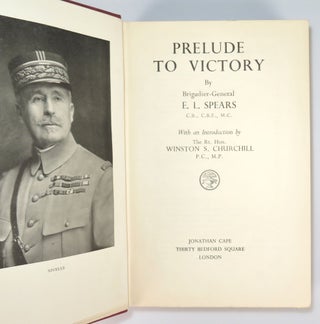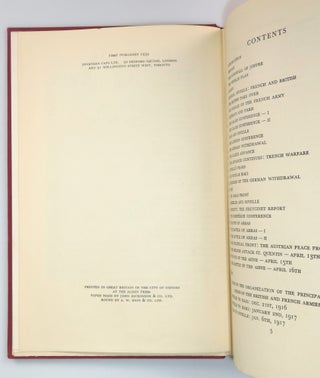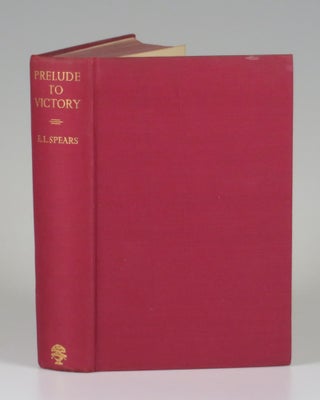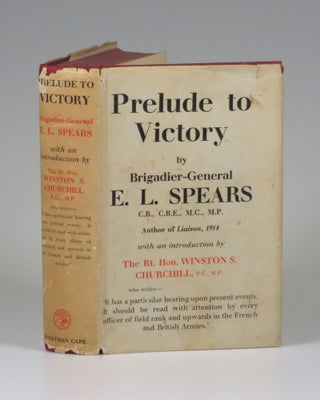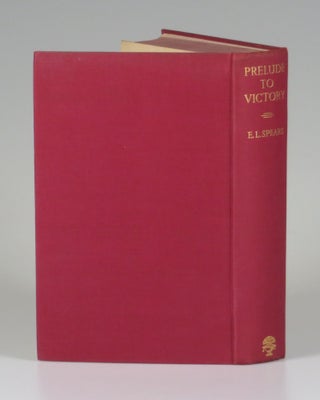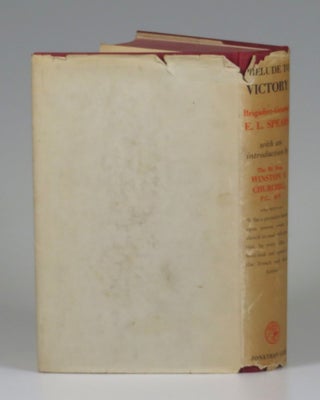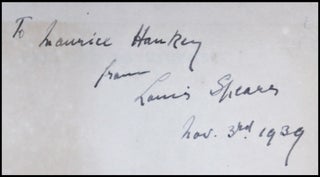Prelude to Victory, an author's presentation copy inscribed in 1939, two months after the Second World War began
London: Jonathan Cape Ltd., 1939. First edition, first printing. Hardcover. This is an inscribed author’s presentation copy of General Spears’s memoir of his role as liaison officer in 1917 during the First World War’s failed Franco-British Nivelle Offensive. The book was a successor to Spears’s Liaison, 1914 (1930). Of note, the author’s inscription is dated exactly two months after Britain and France declared war on Germany, beginning the Second World War.
As prominently noted in red print on the dust jacket spine and front face, Winston Churchill contributed an introduction (pages 11-13). This first edition, first printing was inscribed to Maurice Hankey. Within months of this book’s publication and inscription, both men were playing important wartime roles under Prime Minister Winston S. Churchill.
The inscription, inked in five lines on the front free endpaper recto, reads “To | Maurice Hankey | from | Louis Spears | Nov. 3rd. 1939”. Condition approaches near fine in a good plus dust jacket. The red cloth binding is square, tight, clean, and unfaded with sharp corners and bright spine gilt. We note only trivial shelf wear to extremities and a tiny scuff to the upper edge of the front cover. The contents are clean and bright, the red-stained top edge retaining uniform hue, only the fore edges showing light soiling. Differential toning of the endpapers corresponding to the dust jacket flaps confirms that this copy has spent life jacketed. The dust jacket is unclipped, the original front flap price intact, and has only minor loss to the spine ends and upper front corner. The jacket is soiled, modestly spine-toned, and shows some short, closed tears and attendant wrinkling to the edges. The jacket is protected beneath a clear, removable, archival cover.
In his generous introduction, Churchill observes of Spears that “From his position as a Liaison Officer… he had the opportunity of knowing much that passed behind the lines as well as at the front.” Churchill praises Prelude to Victory as “a military and human study of the highest value and interest.” This was not polite hyperbole. Upon finishing the book, Churchill wrote to Spears on 20 July 1939, “I think it a great work, and one of the finest I have read in the literature of the War.”
His First World War role as liaison officer between British and French high commands gave Major General Sir Edward Louis Spears (1886-1974) not only two highly regarded books, but saw him awarded the Military Cross, made a Commander of the Order of the British Empire and a Commander of the French Legion of Honor, and promoted to brigadier general. Spears served in Parliament from 1922-24 and 1931-45. In the early May 1940 crisis that saw Churchill replace Chamberlain as prime minister, Spears voted against Chamberlain. In 1940, not long after publishing and inscribing this book, now-Prime Minister Churchill sent Spears to France to report “at first hand.” (Gilbert, VI, p.388-9) Spears not only traveled to besieged France with and for Churchill, but also rescued Charles De Gaulle; it was onboard Spears’s plane that De Gaulle took Gallic flight, bravely abandoning his country, army, wife, and children. Spears later served as envoy to Syria and Lebanon and was knighted in 1942.
Maurice Pascal Alers Hankey, 1st Baron Hankey (1877-1963) passed out from the Royal Naval College in 1897, but by 1902 left the fleet for Whitehall, where he spent the great majority of his career. Notably, Hankey served as the first Secretary to the Cabinet (1919-1938) and Secretary to the Committee of Imperial Defence (1912-1938). He was knighted in 1916 and created Baron in 1939. Hankey “remained a Chamberlain loyalist to the bitter end”. Nonetheless, when Churchill became Prime Minister Hankey was able “to carry on his committee work and the ‘special duties’ which had been entrusted to him.” Hankey was relegated to the post of paymaster-general by July 1941. Broad, persistent, open criticism of Churchill led to Hankey’s dismissal in March 1942. (ODNB & Gilbert)
Reference: Cohen B67, Woods B33. Item #006953
Price: $1,950.00

